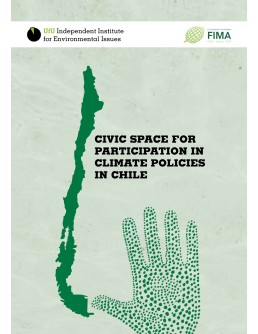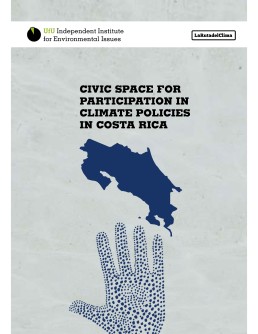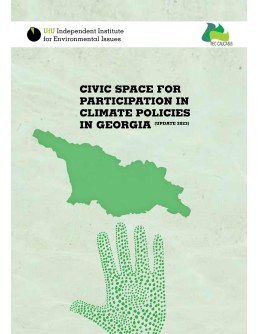
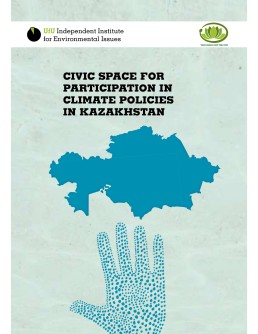
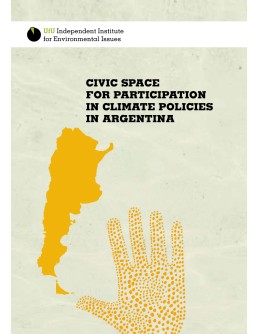
27. November 2023
Country reports on civil society participation in climate policies now available
Together with local research teams, the Independent Institute for Environmental Issues has conducted eight country studies to investigate the environment and conditions for climate-related participation of civil society. The first reports are now available.
This year, the UN Climate Change Conference (UNFCCC COP 28) is taking place from 30 November until 12 December 2023 in Dubai. 2023 marks the year of the first Global Stocktake, focusing on assessing the overall progress made by the parties to the Paris Agreement in addressing the climate crisis and limiting global warming towards “well below 2°C above preindustrial levels and pursuing efforts to limit the temperature increase to 1.5°C above pre-industrial levels”.
The gap between the urgent need to drastically reduce emissions and the current implementation falls far short. The current policies in place imply that the global temperature is expected to rise by 2.8°C by the end of this century. Even with the full implementation of the current pledges the temperature rise is projected to 2.4-2.6°C. Climate Scientists agree that above a warming of 2°C, the probability of reaching tipping points becomes increasingly likely, leading to irreversible and accelerated changes in the climate system. The impacts of the climate crisis continue to escalate, faster and more severe than expected, disproportionately affecting the most vulnerable specifically in countries from the global South. It is crucial to fully address the gaps and the implementation of current policies to safeguard the well-being of all people and the planet. Within the framework of the Paris Agreement, Nationally Determined Contributions (NDCs) are a key tool to ratchet up climate protection. Within the process of the development and review of the NDCs it is legally binding and crucial to involve civil society actors as they are watchdogs and advocates for a fair socio-environmental transformation and know the local circumstances and needs of civil society.
Together with local research teams, the Independent Institute for Environmental Issues conducted eight country studies to investigate the environment and conditions for climate-related participation, such as the legal framework for participation, as well as concrete practices of participatory policy making in Georgia, the Republic of Moldova, Kazakhstan, Ukraine, Colombia, Argentina, Chile and Costa Rica between autumn 2022 and spring 2023. The analysis explores how national civil society is being involved in political processes related to climate policies, including processes under the Paris Agreement. The focus thereby lies on organised groups, rather than individuals and the general public. Are civil society organisations involved in the development of climate-relevant national plans, strategies and other document? Are there good examples or good approaches of participation that enable civil society actors to effectively influence national political processes and raise ambition in climate matters? The studies also identifies concrete country-specific barriers that hamper meaningful, effective and long-term participation, and gives advice for overcoming these barriers.
